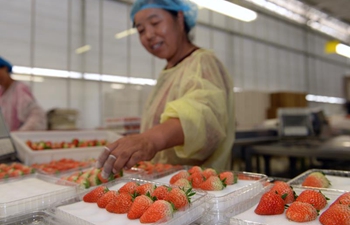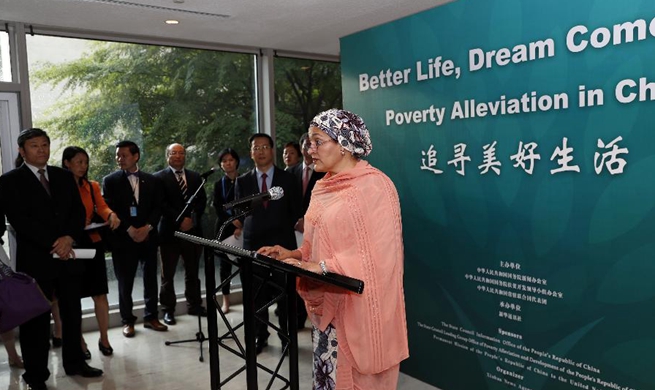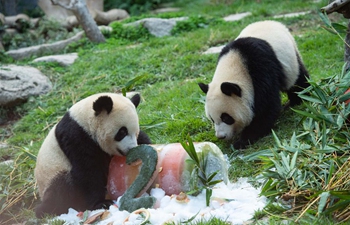by Xu Haijing
BEIJING, June 29 (Xinhua) -- When Jocelyn Chey worked as cultural counselor at the Australian Embassy in Beijing in 1977, she was surprised -- and impressed -- by the strong curiosity the Chinese showed about her country.
With her coordination, two kangaroos were shipped to Beijing Zoo from Australia and soon became the zoo's stars.
A year later, there was another interaction between the two countries, of a different kind.
Nine English teachers from different Chinese universities were selected by the Ministry of Education to travel down under to study at the University of Sydney.
Besides their degrees, the Group of Nine, as the visitors were called, also reaped warm friendship with many Australians.
At the 16th International Conference of Australian Studies in China held in Beijing last weekend, Chey and Hu Wenzhong, one of the nine teacher-students, shared their stories with scholars and students from both countries.
Based on the strong complementarity of their economies, China-Australia relations today have far outgrown simple curiosity and reached the level of comprehensive strategic partnership.
Bilateral trade currently reached 150 billion U.S. dollars from the humble starting point when the two countries traded only wool and wheat.
However closer ties also mean highlighted differences and even friction.
Since the second half of 2016, there has been continuous mudslinging on China by some Australian politicians and media.
At the Australia China Business Council annual networking day observed in Canberra on June 19, Australian Prime Minister Malcolm Turnbull said "mutual respect is the key" to bilateral relations.
Chinese Ambassador to Australia Cheng Jingye offered an answer as to how to ensure mutual respect.
"We need to see each other's development and policy intentions from a more positive perspective with less Cold-War mentality," Cheng said.
"It is my belief that in order to ... achieve sustained and sound development in bilateral relations the two countries need to have more interaction and inclusiveness with less bias and bigotry."
Professor Nick Bisley of Australia's La Trobe University warned that Australia should not take the close economic relations between the two countries for granted.
To avoid further deterioration of bilateral relations, the Australian government must figure out how to cope with a rising China comfortably, Bisley told Xinhua.
Rowan Callick, The Australian newspaper's China correspondent, wrote in an opinion piece published on Monday that "We can't let disagreement and distance become Australia's official strategy for China relations by default."
For mutual respect, countries need to have mutual understanding. Bisley said to improve understanding, the Australia government should emulate what they've done to encourage understanding of the United States, by sending young politicians to visit China and get to know more about China, its political system, culture, history and diversity.
Chey and Hu's stories demonstrate how China-Australia relations have developed. The younger generations will also have their own stories, continuing the ties.

















